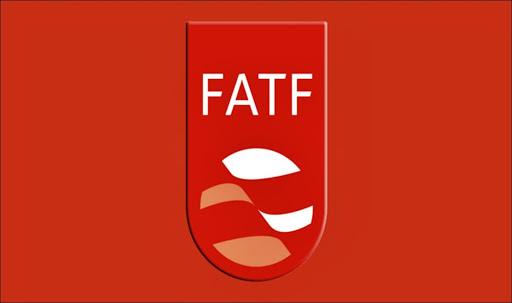No light at the end of tunnel for Pakistan as FATF meets to decide its fate
Mon 22 Feb 2021, 10:21:48

With Financial Action Task Force (FATF) commencing its three-day plenary meeting today, there is no light at the end of the tunnel for Pakistan. Hanging in the grey list of the global anti-terror watchdog, Pakistan has been trying to garner support from the member nations to escape the list.
According to various reports, some European countries have taken a stand against Pakistan saying that Islamabad has not fully implemented all the points of a plan of action set by it to come out of the grey list. Therefore, Pakistan may find it difficult to get out of the grey list before June this year.
In its last plenary held in October last year, the FATF had kept Pakistan on the grey list citing its failure to fulfill six out of 27 obligations of the global money laundering and terrorist financing watchdog. The obligations include failure to take action against two of India's most wanted terrorists - Jaish-e Muhammad chief Maulana Masood Azhar and Jamaat-ud-Dawah head Hafiz
Saeed.
Saeed.
According to the reports, Pakistan had complied its response to these six recommendations and has submitted a report to the FATF secretariat. The members would now evaluate Pakistan's responses during its plenary meeting.
Earlier this month, the Armenian National Committee of America (ANCA) had urged the money-laundering watchdog to add Islamabad to its blacklist for terrorist financing that includes the funding of jihadist mercenaries to fight for Azerbaijan against Artsakh.
The Paris-based watchdog had placed Pakistan on the grey list in June 2018. It had asked Islamabad to implement a plan of action to curb money laundering and terror financing by the end of 2019 but the deadline was extended later on due to the Covid-19 pandemic.
Staying in the FATF-grey list has made it difficult for Pakistan to secure financial aid from the International Monetary Fund (IMF), World Bank, Asian Development Bank (ADB) and the European Union.
No Comments For This Post, Be first to write a Comment.
Most viewed from International
Most viewed from World
AIMIM News
Latest Urdu News
Most Viewed
May 26, 2020
Do you think Canada-India relations will improve under New PM Mark Carney?
Latest Videos View All
Like Us
Home
About Us
Advertise With Us
All Polls
Epaper Archives
Privacy Policy
Contact Us
Download Etemaad App
© 2025 Etemaad Daily News, All Rights Reserved.

.jpg)
.jpg)
.jpg)






.jpg)


.jpg)
.jpg)
.jpg)
.jpg)
.jpg)
.jpg)
.jpg)
.jpg)
.jpg)
.jpg)
.jpg)
.jpg)

















